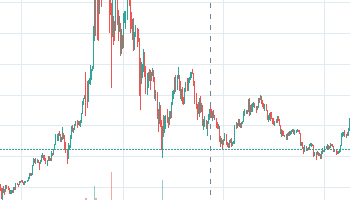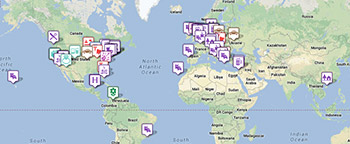2018 has seen the introduction of a new blockchain powered component of start-ups by the Thailand national stock exchange. They have introduced a crowdfunding marketplace built upon blockchain technology in an attempt to widen the access to capital funds for domestic start ups. This service is named LiVE and using blockchain enables peer to peer trading to increase access to capital from investors, including venture capitalists for start ups. To join this platform the companies will have to be registered in Thailand and then they are able to qualify as venture capital investors, corporate venture capital investors or a specific investor with an annual income in excess of THB 4 million.
Other stock exchanges in Asia, such as Hong Kong are also looking to use blockchain as a way to develop security markets for those smaller businesses. Furthermore, it is quite noticeable that more and more countries as well as industries are embracing blockchain from Dubai and the United Kingdom to the Pharmaceuticals and Gaming industries. In fact, there has been huge growth in new brands in the gaming sector like Edgeless, that have made a point of providing the option to its players; whilst there existing brands which include SBObet, who are considering implementing blockchain.
Digital asset business must still be regarded with caution within Thailand and the new industry framework that has been introduced recently means that digital asset businesses must either; cease their activities, transfer the business partly or fully abroad, register the business within 90 days and follow new regulations or understand that their business is illegal and if it is discovered by Thai authorities could result in heavy fines or jail sentences.
There were two royal decrees that were published in May 2018 and were effective immediately and have the same status as a law. The first royal decree was on digital asset business and deals with ICO funding and transactions in relation to digital assets. It states that all market participants have to; register with the SEC within 90 days and apply for approval from the Ministry of Finance to conduct digital asset business. The second Royal Decree is on Digital Asset Taxation and includes further rules in regards to taxation on digital asset transactions, particularly in relation to VAT and withholding of tax.
It is also possible now that any crypto businesses that are linked to anyone based in Thailand could be at danger if they are in any way operating in a negligent manner.
In 2013 it was made illegal by the Bank of Thailand to buy and sell Bitcoin via any means or to even receive Bitcoin from outside the country. But then in 2018 saw the Bank of Thailand circulate a letter to all Thai banks and financial institutions to ensure cryptocurrency transactions and traditional bank transactions were kept separate. From this point financial institutions have not been allowed to invest in or trade in virtual currency, provide financial advice on cryptocurrencies, allow digital assets to be bought using credit cards or to operate exchanges or different kinds of trading platforms.
The Thailand Blockchain Community Initiative has recently been created by fourteen Thai banks joining forces which has seen letters of guarantee on a shared blockchain platform digitized. Top banks such as Siam Commercial Bank, Krung Thai Bank and Bangkok bank are all participating in this initiative. It is hoped that when the industry experiences the huge benefits in terms of execution times, cost saving and increased efficiency; it will lead to the technology becoming more and more mainstream.


 Updated every 10 minutes
Updated every 10 minutes


